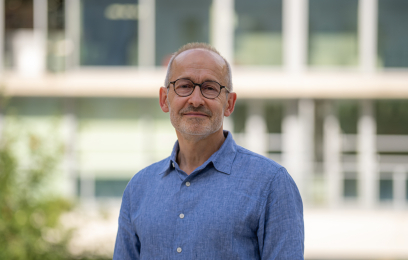Paris/London – 19 November 2020
Sciences Po’s new dual degree in Global and International History with King’s College London is the latest development in a long-term strategic partnership between the two institutions. As the first international dual degree taught at the Sciences Po Doctoral School, the programme also forms part of the school’s internationalisation plan.
This competitive programme allows students to combine Sciences Po’s Master’s degree in History with the MA in Modern History or World History and Cultures at King’s. The course is completed in two years, with the first year spent in Paris and the second in London.
Taught in English, the programme will accept students of any nationality and will begin in September 2021. It is aimed at students wishing to pursue a career in international teaching and research, or in any of a wide range of other sectors: civil service, archives, audio-visual and the creative industries, publishing, journalism, media, NGOs, and more.
This dual degree reinforces the partnership between Sciences Po and King’s College London, which has already given rise to three exchange agreements at Bachelor’s and Master’s level, benefitting around 90 exchange students each year, and a previous dual degree agreement between King’s and the Paris School of International Affairs at Sciences Po (signed in June 2016). This is in addition to long-standing collaborations between academics at both universities, particularly within Sciences Po’s Centre for International Studies (CERI).
“We are pleased to bring together the strengths of our respective History Departments to launch the Graduate Programme in Global & International History. It brings a new and exciting component to the King’s-Sciences Po partnership.” Professor ‘Funmi Olonisakin, Vice President & Vice Principal (International), said.
In the words of Vanessa Scherrer, Sciences Po’s Director of International Affairs:
“Thanks to this new partnership with our partners at King’s, students will benefit from exceptional teaching in historical research, distinguished by its rigorous comparative element. This prestigious programme further advances the internationalisation of the Sciences Po Doctoral School at a time when, more than ever before, our institution is championing the European and international dimension of its teaching.”
More information on the Dual Degree here:
https://www.sciencespo.fr/ecole-doctorale/en/content/sciences-po-kings-college-london.html
About King’s College London
King’s is the fourth oldest university in England: it was founded in 1829 as a university “in service to society”. It is a research-intensive university located in the heart of London and a member of the Russell Group (UK's top 24 research-intensive universities). In the 2014 Research Excellence Framework (REF) King’s was ranked 6th nationally in the ‘power’ ranking, which takes into account both the quality and quantity of research activity. King’s ranks 9th in the Times Higher Impact rankings that assesses Universities against the UN Sustainable Development Goals.
The Faculty of Arts & Humanities at King’s is one of the most prestigious arts and humanities faculties in the country. Based in the heart of London it boasts close ties to many of the city’s most renowned cultural institutions, such as the British Museum, Shakespeare’s Globe and the National Portrait Gallery. It offers undergraduate degrees, postgraduate master’s courses and extensive research opportunities in all aspects of human culture and history, from ancient languages to contemporary film studies
https://www.kcl.ac.uk/artshums/about
About Sciences Po
Founded in 1872, Sciences Po is France’s leading research university in the social sciences. Sciences Po offers degrees at the undergraduate, graduate and executive education levels, and developed 42 dual degree programmes with its network of 470 partner universities.
Today, half of Sciences Po’s 13,000 students are international and represent 150 nationalities. Education at Sciences Po is multidisciplinary, multilingual and outward looking. It also places great emphasis on professional exposure. Following completion of their degree, 80% of the graduates are hired within six months of graduation and 39% start their career abroad. Sciences Po holds a high standard of social responsibility, and plays a pioneering role in the promotion of diversity and equal opportunity in higher education. Sciences Po has an array of financial aid for students of all origins and 26% of the student body hold a scholarship. For more information on Sciences Po: www.sciencespo.fr/en
Media contacts
Sciences Po: Marie Frocrain, marie.frocrain@sciencespo.fr, tel. +33 (0)1 49 54 37 71
King’s College London: Holly Finch, holly.finch@kcl.ac.uk

18.09.2025
Élections, montée des populismes, institutions : les réflexions de la communauté de Sciences Po sur la Démocratie à retrouver sur la plateforme CONFÉRENCE
Paris, le 18 septembre - À la rentrée 2025, Sciences Po lançait Conférence, un site qui éclaire le débat public à la lumière des sciences humaines et sociales, en s'appuyant sur la richesse et la diversité de sa communauté : chercheurs, enseignants, alumni et étudiants.
Présentation d'ouvrages, vidéos de décryptage, interviews, articles d'analyses : Conférence propose des contenus aux formats variés autour de 5 thématiques principales (Démocratie ; Europe ; Environnement ; Numérique ; Conflits) pour rendre les savoirs accessibles au plus grand nombre, offrir du recul pour comprendre l'actualité et ouvrir des perspectives pour penser l'avenir.
Découvrez les dernières contributions de la verticale « Démocratie »
« Bloquons tout ! », analyse d'un mouvement social : les chercheurs Marion Fontaine (Centre d'Histoire) et Samuel Hayat (CEVIPOF) proposent face caméra leur analyse du mouvement, l'inscrivant dans une perspective historique et internationale.
Finances publiques de la France : à la recherche de l'équilibre perdu : l'enseignant d'économie à Sciences Po, Adrien Lehman, revient dans son analyse sur ce marronnier de l'histoire politique de notre pays.
Vers la fin des partis ? : bonnes feuilles du dernier ouvrage d'Alexandre Dézé, politologue formé à Sciences Po, sur le supposé déclin des partis politiques en France.
Charlie Kirk, le martyr du trumpisme : entretien de Jérôme Viala-Gaudefroy, spécialiste de la politique américaine et enseignant à Sciences Po, sur l'influence de cette figure trumpiste assassinée.
L'entreprise comme terrain politique : comprendre et contrer le vote d'extrême droite : l'alumnus Alexandre Lourié, Directeur Général International du Groupe SOS, explore dans son analyse comment la dégradation de la qualité de vie en entreprise peut constituer un ressort profond du vote extrême droite.
Un nouvel âge des imposteurs ? : entretien avec la chercheuse Astrid von Busekist (CERI) sur son dernier ouvrage qui s'intéresse au sujet de l'identité à partir d'un angle inédit : celui des impostures.
Pour recevoir chaque semaine les dernières parutions, inscrivez-vous à ce lien.
Lire plus

